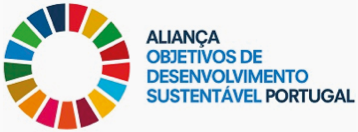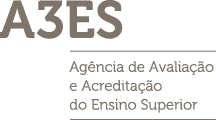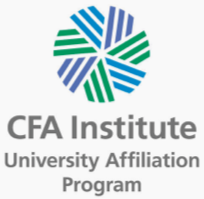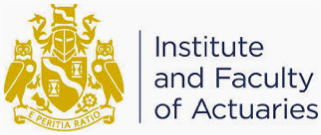Contributes to the
our collective future.
The country thanks you.

If you want to deepen your knowledge of State intervention in the economy, how decisions are made and how public policies are implemented and evaluated, first go to ISEG and enroll in the Master in Economics and Public Policy (MEPP).
This is an innovative master's degree that, in 2019, ranked 21st in Eduniversal's Top 200 Best Masters Global Ranking in the Public Administration/Management category.
Created in the 2007-08 school year, the MEPP has a specialized and nationally and internationally recognized faculty in several domains of public policies, such as education, health, social inequalities, energy and environment, territorial development, urban policies and public finance ( central and local administration).

MEPP is intended to provide postgraduate training to all graduates in Economics, or other degrees considered relevant (Engineering, Management, Public Administration, Law) who wish to continue their academic preparation with a view to carrying out a professional activity in areas of public policy.
Students come from different backgrounds and educational institutions, which promotes diversity and enhances networking.
MEPP provides graduates who, exercising technical functions in areas of public policy, wish to deepen their theoretical training, update their technical knowledge in these areas and contact recent approaches that have been emerging, at an academic and technical level, to analyze public policies .
The course helps develop a culture of demand, rigor, and quality, becoming a differentiating factor and a means of creating and consolidating knowledge.
The MEPP can be completed by writing a dissertation, writing a project for an institution (public or non-profit), which will result in project work, or writing an internship report with a company or institution.
Students have the opportunity to attend, free of charge, a preparatory course on Introduction to Microeconomics.

Contributes to the
our collective future.
The country thanks you.



The objectives of the master's degree are differentiated according to the student's needs.
For the student who is more dedicated to research and who considers continuing his studies for the 3rd cycle, the master's degree should be conducted with a view to preparing a dissertation. For the student who wants a greater connection to the application of public policies in projects associated with concrete institutions, the master's degree will be oriented towards the elaboration of a project for an institution (public or non-profit) which will result in a project work. For the student who intends to enter active life, the master's degree will end with an internship that will result in a report.
The Master in Economics and Public Policy is intended to provide postgraduate training to all graduates in Economics or other degrees considered relevant (Engineering, Management, Public Administration, Law) who wish to continue their academic preparation with a view to carrying out activities professional in areas of public policy.
This master's degree is also aimed at graduates who, exercising technical functions in areas of public policy, wish to deepen their theoretical training, update their technical knowledge in these areas and come into contact with recent approaches that, at an academic and technical level, have been emerging to analyze public policies. The master's degree is also intended for students who, having completed postgraduate training (at INA, ISEG or other higher education institutions), intend to continue their studies leading to a master's degree.
| Year 1 - Semester 1 | Credits |
|---|---|
| Demography | 6 |
| Public Economy | 6 |
| Economy, Institutions and Development | 6 |
| Applied Quantitative Methods | 6 |
| Economic policy | 6 |
| Year 1 - Semester 2 | Credits |
|---|---|
| Option B - Finance and Public Administration — Inequalities, Social Exclusion and Social Policies — Public Finance: State and Local Authorities — Regulation, Competition and Tariffs — Optional I —Optional II | 6 6 6 6 6 |
Note: The Master's Degree in Economics and Public Policy has a Social Policy and Third Sector area that will not operate in 2024/2025..
| Year 2 - Semester 1 | Credits |
|---|---|
| Optional III | 6 |
| Optional IV | 6 |
| Research Seminar | 6 |
| Master's Final Work (Internship/Project/Dissertation) | 12 |
| Year 2 - Semester 2 | Credits |
|---|---|
| Master's Final Work - Internship - Design - Dissertation | 30 |
| Optional |
|---|
| Optional I & II — Economics of Education — Health Economics — Governance and Public-Private Partnerships |
| Optional III & IV — Sustainable Development: Natural Resources and City Policies - Evaluation of Public Programs and Policies — Economics and Information Technologies in Public Management |
See the description of each Curricular Unit here.
Applications for all master's degrees at ISEG are made online.
Candidates for Master in Economics and Public Policy must:
The criteria for selecting candidates and their weighting are set out in the table below:
| Criteria | Scale | Weighting |
| Final average of 1st cycle or equivalent | 0-20 | 25% |
| School, Nature of Degree and Professional Experience (if applicable) | 0-20 | 60% |
| Classification in UC in microeconomics, quantitative methods or others related to the area of Public Policy | 0-20 | 15% |
The minimum overall assessment value for acceptance of a candidate - 13 values;
The minimum overall assessment value for immediate acceptance of a candidate in advance of selection - 14 values.
Definition of application requirements and profiles for which additional academic preparation will be required (in those courses that deem it necessary)
Provisional tuition fees for 2024/25, pending confirmation by the University of Lisbon's statutory bodies.
| students from | 1st year | 2nd year | Total |
| Students within the EU | € 2,950 | € 2,000 | € 4,950 |
| Students outside the EU (International) | € 3,900 | € 2,500 | € 6,400 |
We believe that financial restrictions should not impede access to higher education and that is why we seek to provide equal opportunities for all.
At the student's request, a specific payment of the fee can be agreed.
If you are not an EU, EEA or Swiss citizen, then you will need a Student Visa.
Once you have decided to join the master's program and paid the 1st tuition fee instalment to secure your place, you can issue the acceptance letter on the FENIX Portal. This document will be needed later to apply for a Student Visa.
The student visa must be requested at the nearest Embassy or at a Portuguese consular post in the country of origin.













